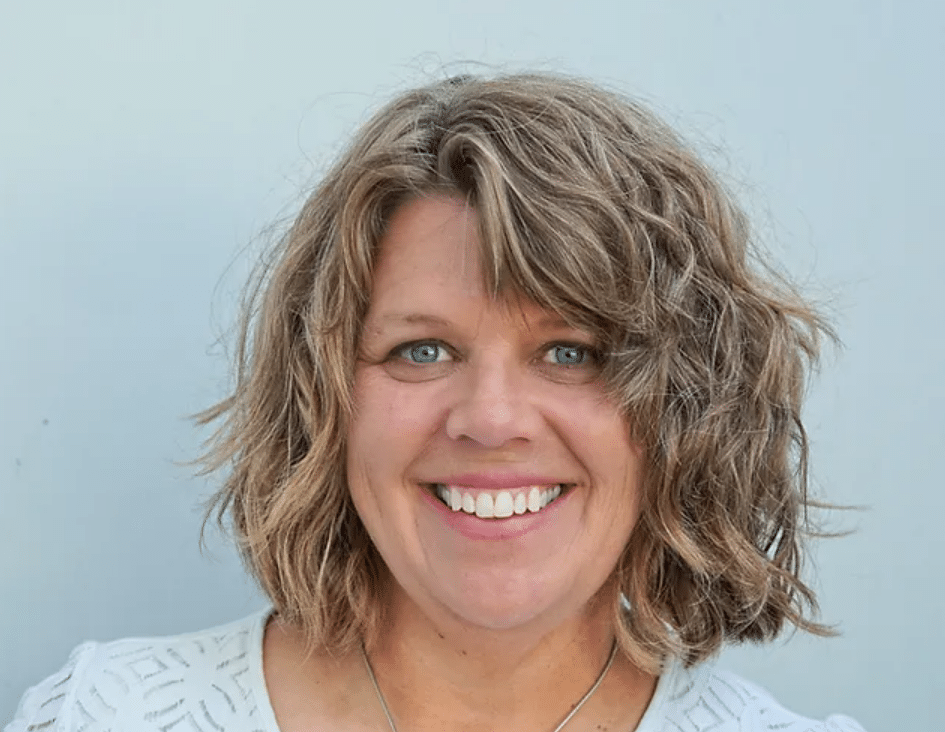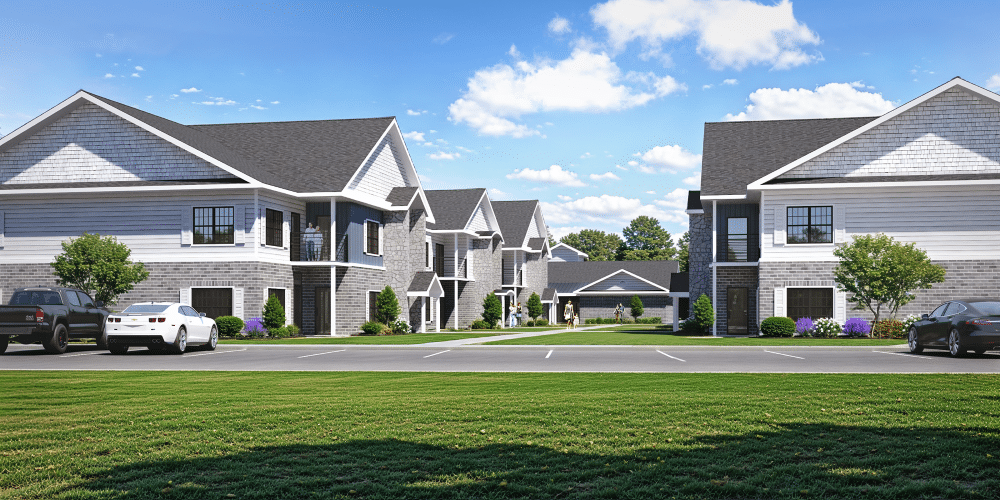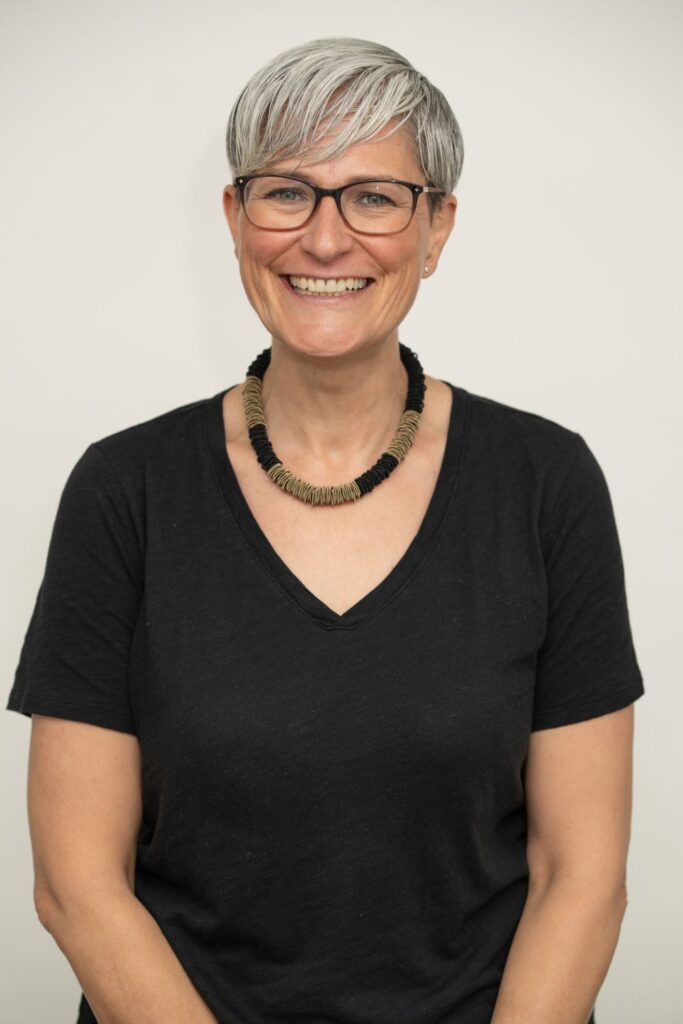Small Housing Developer Leverages Partnership for PSH

By Mark Fogarty
7 min read
It is highly unusual these days for an affordable housing development to be financed from one source of funds. But that is what has happened at Elevate Estates in Henderson, KY, which secured money from two arms of HUD’s HOME program.
Developer Elevate WKY (who shares the same name as the development) was awarded $15 million from both the regular HOME program and the HOME Investment Partnerships American Rescue Plan Program (HOME-ARP) to build 48 units of Permanent Supportive Housing (PSH), coming in at just over $300,000 per unit.

Initially, Low Income Housing Tax Credits were in the mix. Still, Julie Wischer, executive director of Elevate, says, “Because of the amount of HOME funds and the population being served, it was hard to logistically work all that out. So, the Kentucky Housing Corporation went back to the drawing board and reconfigured our award.”
The first-time developer also benefited greatly from attending the Kentucky Supportive Housing Institute, a specialized training program facilitated by the Corporation for Supportive Housing.
Wischer says her nonprofit was a social services organization that focused on life skills for adults with disabilities. However, a lengthy shutdown during the COVID-19 pandemic allowed the institution to develop a new business plan, and it decided that development “was a step we’d like to take.”
A keystone of the Supportive Housing Institute is a partnership between newly emerging developers (in this case, Elevate) and a more experienced firm. Elevate partnered with Equal Development of Carmel, IN, which had already completed a senior housing project in Henderson, a small town of 28,000 located near the Indiana border.
That partnership is going smoothly, Wischer says. “We both bring our own expertise.”
Ten of the 48 units have been set aside for people with intellectual disabilities, with an emphasis on serving the formerly homeless. Construction is now underway (dirt work, sewer lines, footers for the clubhouse), and completion is anticipated next year.
Significant Need and Opportunity
There is “a huge shortage” of affordable housing in Henderson, which has seen influxes of economic and infrastructure development in recent years, Wischer says. And while Elevate Estates provides specialized housing, she says there has been no NIMBYism.
“There has not been one person who’s against it,” she says. “We have a really good-hearted community.”
Attending the Supportive Housing Institute, run by the Corporation for Supportive Housing, “really opened my eyes to PSH and those who struggle with homelessness,” Wischer says. “We went through the training and embraced that model.”
The training “helped the project go quicker,” she says. “This has moved at a faster pace than I’d expected.”
Being in rural Midwest America is allowing Elevate to come in at a reasonably low development cost. “A three-bedroom, two-bath house costs $225,000 in this community,” Wischer says. “Gas is $2.55 a gallon, and we have good utility rates.”
She notes that two hours away, in Louisville, housing costs are twice those in Henderson.

It Takes a Village
Elevate will be the chief service provider. According to local media outlet The Hendersonian, the developer will also work with the following local service providers:
- River Valley Behavioral Health for mental health assessment, targeted case management, long-term waiver case management, therapy, and substance use services;
- BrightView Health for medical, clinical, and case management services to eligible project tenants struggling with the disease of addiction;
- Deaconess Cross Pointe Behavioral Health for mental health urgent care, inpatient services, outpatient services, drug and alcohol treatment services, youth services, and medication management services;
- Health First Community Health Center for primary care, behavioral health, diabetes management, pediatrics, women’s health, nutrition therapy, weight management, skin care, and optometry; and
- Audubon Kids Zone for educational and social support services for youth/families.
Some specialized services will be on-site, and Elevate will provide transportation to those off-site, as well as to community events, such as Henderson’s annual W.C. Handy Blues Festival (so named due to a story that the “father of the blues” spent some time in Henderson after his car broke down there).
The project will consist of two buildings, each with 24 units, plus an on-site clubhouse. Elevate is now launching a capital campaign to raise funds for new on-site headquarters adjacent to housing.
The clubhouse will include exercise space, a community room, mailboxes, a leasing office, and space for supportive services.
Thirty-two of the Elevate units will be one-bedroom, and 16 two-bedroom. Washers and dryers will be included in each unit. Elevate is employing trauma-informed design principles, incorporating calming lighting and color schemes throughout its indoor spaces. On the outside, “We want to blend in with the community and look like any other apartment community,” says Wischer.
Mostly, Wischer expresses hope for what Elevate Estates might mean for Henderson and the surrounding areas in the future. “There’s nothing like it in this region. I’m excited to see if this can be an example for other areas.”
Supportive Housing Institute Fosters Needed Collaborations
The Corporation for Supportive Housing (CSH), a national nonprofit organization headquartered in New York City, operated ten institutes nationwide last year to train developers and nonprofits in best practices for permanent supportive housing.

According to CSH director Leah Werner, the 30-plus-year-old organization’s “flagship training series” is the Supportive Housing Institute. And it is a successful initiative. Werner says about 80 percent of attendees nationwide end up building Permanent Supportive Housing (PSH).
Werner states that CSH defines PSH as housing that costs no more than 30 percent of a tenant’s gross annual income, while simultaneously providing access to robust, voluntary, and tenant-centered services.
The Institute is efficient and quite in demand, she says. CSH issues a Request for Proposals and consistently receives more applications than it can accommodate. Groups, like Elevate, come to the institute with a kernel of an idea for PSH, and the training helps move their idea forward by providing input on questions such as where to build, funding opportunities, fair housing issues, how to site properties, and which populations to target.
“They meet bi-monthly to troubleshoot in real time, to position development teams for success when they open their doors. It’s not cookie-cutter. It’s super interactive,” she says.
A final session gathers funders and experts from the field as an audience for a 20-minute presentation on the individual projects. Attendees then “get real-time feedback on how to strengthen their applications for capital funding,” says Werner.
In the case of Kentucky, the Kentucky Housing Corporation, the state’s housing agency, hired CSH “to support efforts related to the infusion of HOME ARP (American Rescue Plan) dollars,” which Werner describes as “a once-in-a-generation effort perfectly aligned with supportive housing.”
Elevate was part of a 2023 Institute, graduating in July of 2023. CSH also ran a 2022 Institute in Kentucky that has produced its own set of successful developments. In all, ten teams have participated in Kentucky over the two sessions, and seven have been funded for housing, Werner says.
“I think it’s a great project,” Werner says of Elevate Estates. “This is a big development for that community.”
What Teams Receive from a Supportive Housing Institute:
- A robust network of peers and industry experts.
- A complete, affordable, supportive housing plan from concept to shovel-ready;
- Individualized technical assistance;
- Strategies for navigating complex zoning, development, and regulatory processes;
- Best practices for designing for quality and sustainability;
- Training on budgeting, operations, and property management; and
- A robust network of peers and industry experts.